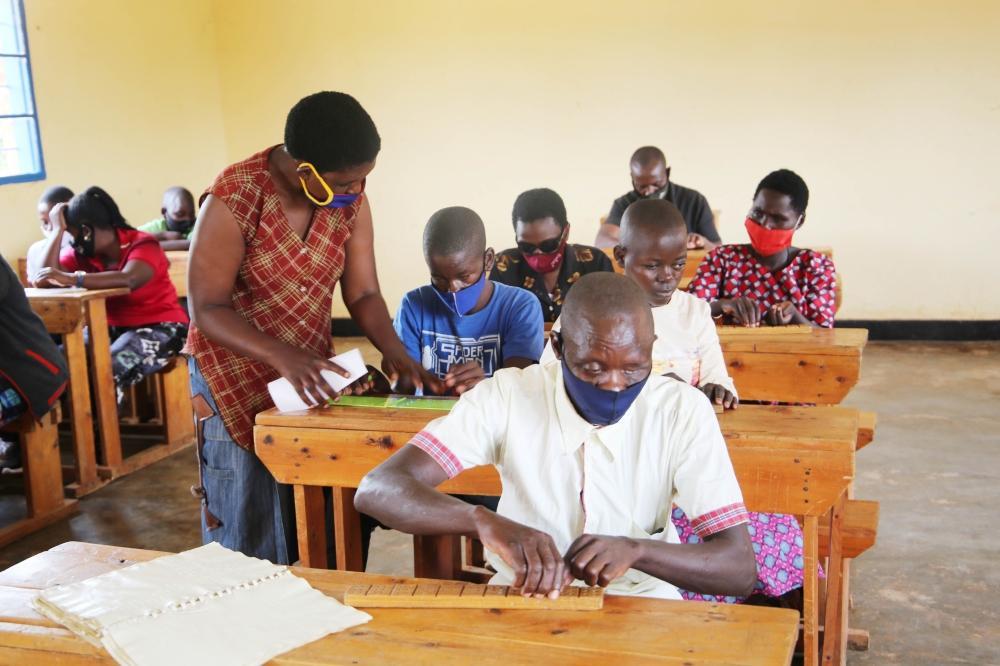Africa-Press – Rwanda. A study by the Rwanda Union of the Blind (RUB) has found that up to 48 per cent of people with visual impairment do not use any assistive technologies, while 52 per cent rely on tools such as screen readers.
Assistive technologies (AT) are devices, software or equipment designed to help people with disabilities perform tasks that might otherwise be difficult or impossible for them to do.
The study conducted in October 2024 showed that only 9 per cent of respondents could access digital services with minimal difficulty, with over 50 per cent requiring assistance. It also revealed that 68 per cent of respondents considered assistive technologies too expensive, while over 31 per cent were unaware of the associated costs.
“These statistics illustrate the persistent impact of the digital divide on our community,” said RUB chairperson Beth Mukarwego.
“We must work towards making digital platforms accessible and affordable, ensuring that assistive tools are widespread and inclusive.”
She added that there are challenges in access to education and employment due to limited skills in digital technologies.
“Our research shows that very few visually impaired individuals can use technology independently,” she said.
“Many government and educational platforms related to school admissions, government services, and job applications are incompatible with assistive software, like JAWS, and this hampers independence and access to opportunities,” she noted.
Visually impaired people have issued a call for immediate reforms in the design of digital platforms to ensure greater access to education and jobs.
Pappy Sibomana, an assistant lecturer at Rwanda Polytechnic Musanze Campus, who is visually impaired, illustrated the barriers faced by visually impaired users.
“As a person with visual impairment, I often encounter significant obstacles when accessing popular Rwandan online platforms such as Irembo and the Rwanda Revenue Authority’s portal,” Sibomana said.
“These sites lack proper structure and accessible design features, making them nearly impossible to navigate using screen readers.”
He stressed that many websites are developed without considering assistive technologies, including screen readers, which are vital for blind and visually impaired people.
“Images often lack alternative text descriptions, and many buttons and links are unlabeled. This means crucial information remains inaccessible to us,” Sibomana explained.
Sibomana pointed to the need to improve the Ministry of Public Service and Labour’s (MIFOTRA) e-recruitment platform.
“While some improvements have been made, the psychometric tests required for job applications are still completely inaccessible to blind applicants, effectively blocking us from accessing employment opportunities,” he noted.
“Accessibility should be integrated from the outset of digital platform design. Retrofitting is costly and often incomplete. We need to design with everyone in mind from day one,” he added.
The union is urging government agencies, private developers, and service providers to adhere to international web accessibility standards, including the Web Content Accessibility Guidelines (WCAG), to foster a more inclusive digital landscape across Rwanda.
For More News And Analysis About Rwanda Follow Africa-Press






